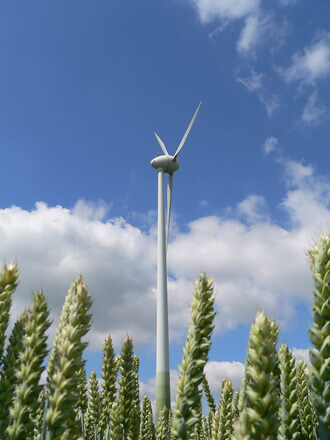This article first appeared Funding in Focus, Report One, May 2015 by Vannin Capital and Legal Week. To view the original article and full report contact VanninMarketing@vannin.com or here: http://goo.gl/GL7wQg
Iain McKenny, General Counsel of Disputes, Vannin Capital
In this ‘industry focus’ section, we will focus on a specific industry and what it reveals about the legal landscape from the perspectives of claimants, lawyers, and funders. We’ll examine electrical power disputes in Europe, the causes for these disputes, who is winning, where, and why and how new litigation and arbitration opportunities loom large on the horizon.
Electrical power production and distribution disputes are among the most prevalent types of dispute in the world. It is a vital resource, expensive to produce and distribute. The shift away from coal and gas to renewables and the debate over the benefits of nuclear power seem likely to keep this sector contentious, especially in Europe.

The shift away from coal and gas to renewables and the debate over the benefits of nuclear power seem likely to keep this sector contentious, especially in Europe.
The International Center for Settlement of Investment Disputes’ (ICSID’s) 2014 statistical report shows that the electricity sector generates more disputes than any other European sector. Furthermore, electricity disputes are among the most high-profile, complex and high-value cases in the world.
According to the International Chamber of Commerce (ICC), 15% of disputes in 2012 concerned electricity, while ICSID reported that 30% of new cases in 2014 related to electricity production or distribution. Furthermore, according to the United Nations Conference on Trade and Development, the Energy Charter Treaty (ECT) is the second-most used investment treaty in investor or state dispute settlement – most of such disputes concerning electricity production and distribution.
Electricity disputes are frequently and increasingly about big money. According to the American Arbitration Association there was a 600% increase in the largest energy claim in just three years from $60 million (£40 million) in 2008 to $360 million (£240 million) in 2011.
Also, consider the recent ‘mega’ cases: the Yukos cases; Libananco Holdings Co. Ltd. v. Turkey; and Vattenfall v. Germany – all concern electric power. Against this background, collisions of interest between investors and states are inevitable. ICSID regularly produces statistics that indicate that in investor/state disputes, respondent states prevail against claimant investors 40% of the time, claimant investors prevail 30% of the time and disputes are discontinued or settled about 30% of the time.
Of these latter disputes, most are discontinued at the request of both parties (34%). The next most common reasons for a case failing to reach judgment are a settlement agreement (22%) and the lack of payment of the required advances (22%).
These statistics suggest that of the 463 disputes by investor claimants last year at ICSID alone, 183 will fail and 140 will succeed. Of the remaining 140, more than half, 78, will reach agreement. The remaining 62 will discontinue, the majority owing to a lack of funds.
But to what extent does this pattern apply to electricity disputes? And are country-specific and region-specific factors likely to have an impact? In a market worth billions of euros a year, it is worth exploring what the statistics and experts tell us about electricity disputes in Europe.
Vannin has identified more than 70 significant electricity disputes at various stages across Europe from its own case reviews, a statistical analysis of data sourced from IA Reporter, Encharter.org, GAR and newspaper and industry articles. The results have been broken down so that they focus on Europe’s three largest economies – Germany, France and the UK – and by region, covering Northern Europe, Southern Europe, and Eastern and Central Europe.
In the UK, the most striking aspect of electricity disputes is that the claimants have won 75% of the disputes, mostly against Eastern European and Russian respondents. Furthermore, despite its 120 bilateral investment treaties (BITs), the UK is yet to face a claim under a BIT. Given pending electricity constraints and the migration towards renewable energy, many experts believe the UK and UK entities will become more and more active in electricity disputes. German entities have recently been involved in 11 major electricity disputes. Germany has been a respondent in two of these disputes – one of which has settled while the other is pending.
For the rest; http://goo.gl/GL7wQg
Filed Under: Uncategorized




